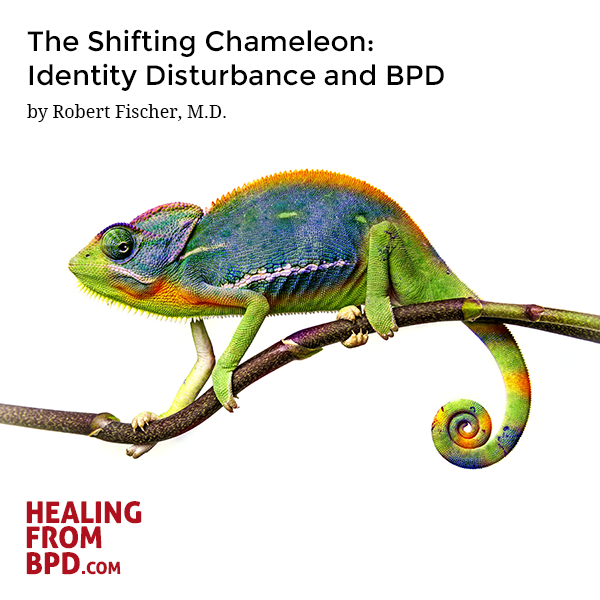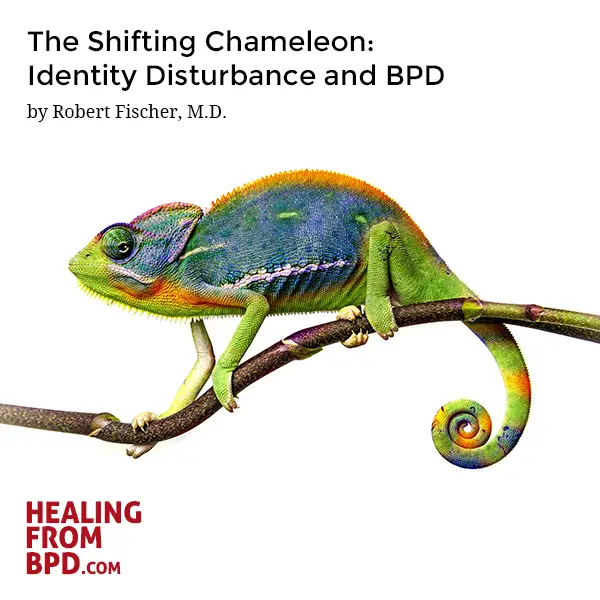Have you ever met someone who seemed to have a different personality every time you saw them? Chameleon personalities, or people who adapt their behavior to fit different situations or groups of people, can be difficult to understand. Despite their complexity, there are a few common causes of this behavior that can shed light on why some individuals have such a versatile personality.
One possible cause of chameleon personalities is a strong desire to fit in and be accepted by others. These individuals may feel like they need to change who they are in order to be liked or respected, which can lead to a constant shifting of their behavior and attitudes. In addition, chameleon personalities may also be a result of past experiences or traumas that have caused them to become hyper-aware of their surroundings and the people around them. Whatever the reason, understanding the causes of chameleon personalities can help us better relate to and communicate with those who exhibit this behavior.

What Causes a Chameleon Personality?
A chameleon is known for its ability to change colors to blend in with its surroundings. Similarly, a person with a chameleon personality has the ability to adapt to different situations and personas depending on the people they are with. While this may seem like a helpful skill to have, it can also be a sign of deeper issues. So, what causes a chameleon personality?
1. Childhood Experiences
Childhood experiences can have a profound impact on a person’s personality. Children who grow up in unstable environments may learn to adapt to different situations and personas as a way to cope with their surroundings. This can lead to a chameleon personality in adulthood.
Additionally, children who are constantly praised for their ability to “fit in” or “be like everyone else” may also develop a chameleon personality as a way to seek approval and validation from others.
2. Fear of Rejection
One of the main reasons people develop a chameleon personality is because of a fear of rejection. They may feel that if they show their true selves, they will be rejected or judged by others. As a result, they adapt to different situations and personas in order to fit in and be accepted by others.
3. Lack of Self-Awareness
People with a chameleon personality may not have a clear sense of who they are or what they stand for. They may be so focused on pleasing others and fitting in that they lose sight of their own values and beliefs. This lack of self-awareness can lead to a chameleon personality as they try to be whoever they think others want them to be.
4. Low Self-Esteem
Low self-esteem can also contribute to a chameleon personality. People who do not feel good about themselves may feel like they need to change who they are in order to be accepted by others. This can lead to a constant cycle of adapting to different situations and personas in order to feel validated and accepted.
5. Insecurity
Insecurity is another factor that can contribute to a chameleon personality. People who feel insecure about themselves may feel like they need to change who they are in order to fit in and be accepted by others. This can lead to a constant cycle of adapting to different situations and personas in order to feel validated and accepted.
6. Desire for Control
Some people may develop a chameleon personality as a way to gain control over a situation. By adapting to different situations and personas, they may feel like they are in control and able to manipulate the people around them. This can be a sign of deeper issues related to power and control.
7. Lack of Boundaries
People who have a chameleon personality may also struggle with setting and maintaining boundaries. They may be so focused on pleasing others and fitting in that they do not know how to say no or stand up for themselves. This can lead to a constant cycle of adapting to different situations and personas in order to avoid conflict and maintain relationships.
8. Difficulty with Intimacy
People with a chameleon personality may also struggle with intimacy in relationships. They may be so focused on adapting to their partner’s personality and preferences that they lose sight of their own needs and desires. This can lead to a lack of authenticity in the relationship and a difficulty with true intimacy.
9. Imposter Syndrome
Imposter syndrome is a psychological pattern in which someone doubts their accomplishments and has a persistent fear of being exposed as a fraud. People with imposter syndrome may develop a chameleon personality as a way to hide their perceived inadequacies and fit in with their peers.
10. Trauma
Finally, trauma can also contribute to a chameleon personality. People who have experienced trauma may feel like they need to adapt to different situations and personas in order to protect themselves and avoid further harm. This can be a sign of deeper issues related to trauma and may require professional help to address.
In conclusion, a chameleon personality can be a sign of deeper issues related to childhood experiences, fear of rejection, lack of self-awareness, low self-esteem, insecurity, desire for control, lack of boundaries, difficulty with intimacy, imposter syndrome, or trauma. If you or someone you know struggles with a chameleon personality, it may be helpful to seek professional help to address these underlying issues and develop a stronger sense of self.
Frequently Asked Questions
Chameleon personalities are individuals who display different behaviors and attitudes depending on the people they are with or the situation they are in. Here are some frequently asked questions about what causes a chameleon personality.
What is a chameleon personality?
A chameleon personality is someone who changes their behavior, attitude, and even values depending on the people they are with or the situation they are in. They tend to blend in and adapt to their surroundings, making it difficult for others to know their true self. This behavior can be intentional or unintentional and can result in confusion, mistrust, and a lack of authenticity.
The causes of a chameleon personality are complex and can vary from person to person. It can be due to a lack of self-confidence, fear of rejection, a desire to fit in, or a need for control. It can also be a coping mechanism developed in childhood to deal with difficult or unstable environments. Understanding the root cause can help individuals address and overcome this behavior.
Is a chameleon personality a mental disorder?
No, a chameleon personality is not a recognized mental disorder. However, it can be a symptom of underlying mental health issues such as anxiety, depression, or personality disorders. It is important to seek professional help if this behavior is causing significant distress or affecting daily functioning.
It is also important to note that not everyone who displays chameleon behavior has a mental health issue. It can be a learned behavior or a personality trait that can be addressed through self-reflection, therapy, and personal growth.
Can a chameleon personality be changed?
Yes, a chameleon personality can be changed with effort and self-awareness. It requires identifying the root cause of the behavior and addressing any underlying issues. It also involves developing a sense of self and values that are consistent across all situations and relationships. This can be achieved through therapy, self-reflection, and building healthy relationships based on authenticity and trust.
Changing a chameleon personality is not a quick fix and requires commitment and self-discipline. It can be a challenging process, but the rewards are worth it. Living authentically and building genuine relationships can lead to greater happiness, fulfillment, and success in all areas of life.
How does a chameleon personality affect relationships?
A chameleon personality can negatively affect relationships by creating confusion, mistrust, and a lack of authenticity. When someone is constantly changing their behavior and attitude, it can be difficult for others to know their true self and build a meaningful connection. This can lead to a lack of trust and a feeling of being misled or manipulated.
It can also lead to a lack of fulfillment and satisfaction in relationships. When someone is not being true to themselves, they may settle for relationships that do not align with their values or needs. This can result in a lack of fulfillment and a feeling of being unfulfilled in relationships.
What are some tips for overcoming a chameleon personality?
Some tips for overcoming a chameleon personality include identifying the root cause of the behavior, building self-awareness, and developing a sense of self and values that are consistent across all situations and relationships. It can also be helpful to seek professional help through therapy or coaching to address any underlying mental health issues or to develop coping mechanisms.
Building healthy relationships based on authenticity and trust is also important. This involves being honest and transparent about one’s thoughts, feelings, and values, and setting boundaries that align with these values. Finally, it requires commitment, self-discipline, and a willingness to step outside of one’s comfort zone to live authentically and build genuine connections.
The Chameleon Narcissist: Am I Dealing With A Lizard?
In conclusion, the chameleon personality is a complex phenomenon that has puzzled psychologists for years. While there is no one definitive answer to what causes this type of behavior, research has shown that it may be linked to a combination of nature and nurture.
One possible explanation is that people with chameleon personalities have a heightened sensitivity to social cues and are more likely to adapt their behavior to fit in with different groups. Another factor could be a lack of a strong sense of self-identity, which leads individuals to mimic the personalities of those around them.
Ultimately, the causes of chameleon personality remain a mystery, but it is clear that it can have significant impacts on an individual’s relationships and overall well-being. It is important to continue studying this phenomenon to better understand it and develop effective strategies for those who struggle with it.


